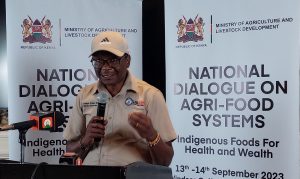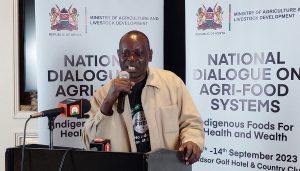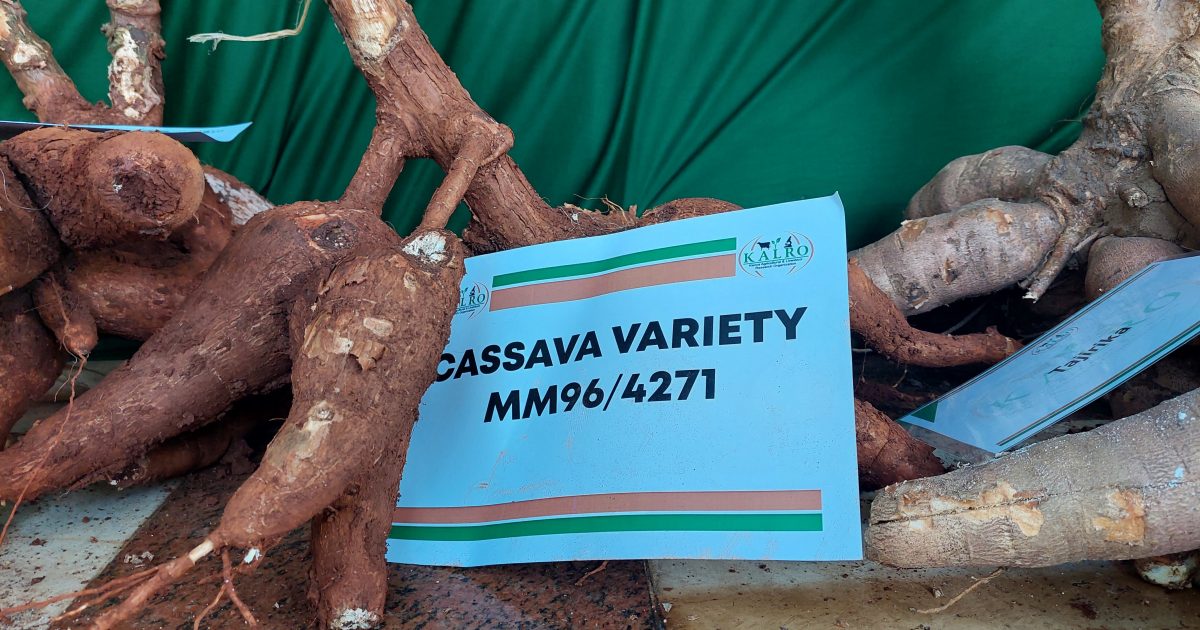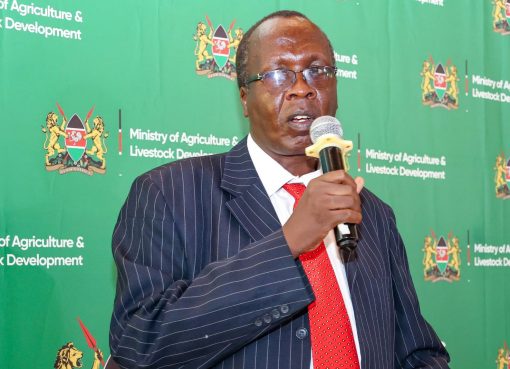A two-day National Dialogue of stakeholders in the agriculture sector is slated for next week to discuss modalities of increasing consumption of affordable and safe indigenous foods to promote healthier diets in the country.
The meeting whose theme will be “Indigenous Foods for Health and Wealth” will revolve around enhancing, promoting and mobilization of private sector to support consumption of nutritious indigenous foods in the country.
Speaking ahead of the upcoming meeting, Dr. Robert Mwadime, who is the Chief of Party (CoP) for the Kenya Crops and Dairy Market Systems (KCDMS) a USAID project said there was need to increase the production of indigenous foods to encourage consumption of such foodstuffs in local household diets.
He noted that it is time that the country stop depending on only two or three food crops mainly maize, wheat and Irish potatoes but move towards production of more indigenous crops and animal products.
“We have seen the country what over rely too much maize as a staple food making it a security crop but we must try and substitute other crops especially the drought tolerant varieties considering the climate change situation “, he said
Dr. Mwadime emphasized that the climate change phenomena had thrown the experts to the drawing board on the suitability to continue producing maize and wheat as the main staple for this country considering the fact that arable land had reduced from at least 20 to 15 percent.
“Owing to the changing global trends, especially the need to reduce food import bills and emerging diseases, Kenyans have to agree to diversify by growing improved indigenous food,” Mwadime added.
Other countries in Africa he confirmed, for example, Nigeria and Ghana have succeeded in promoting indigenous food to supplement quantities from other sources.

As the years go by, Dr. Mwadime said the country is going to have less and less as productivity of maize goes down and other crops can therefore become staple food”, he said.
Dr. Mwadime thanked the government through the Ministry of Agriculture for thinking on blending the country’s flour, mainly Wheat, and Maize with other crops that are more of indigenous starting in the month of November.
“Are we going to have enough of the indigenous food for the blending initiative that has been suggested by the government and others? We may not have those initially, but demand will drive production and we have seen this in the country where when demand increases, production follows as farmers are assured of market”, he explained.
Dr. Mwadime observed that to sustain the blending, government should support farmers by reducing cost of production by giving fertilizer and other subsidies targeting the indigenous crops such as millets sorghum, cassava, sweet potato even food such pulses – green grams, cow peas and pigeon peas as well as leafy vegetables.
The Agri–food nutritionist with the ministry of agriculture Mary Njeri confirmed that the government will initiate a nationwide blending programme stressing the role of the private sector in promoting indigenous foods in the country as key to make the goal a reality.
“The private sector can play a crucial role in increasing consumption of indigenous foods, benefiting nutrition, livelihoods and culture”, she said.
Njeri explained that during the upcoming national dialogue conference, stakeholders will discuss the transformation for food security and climate resilience and raise awareness about indigenous foods with focus on its contribution to health towards reduction of non-communicable diseases in households.
Andrew Egala, National Secretary Scaling up Nutrition Business Network said there is a challenge in global malnutrition, nutrition deficiency and chronic diseases.
According to Kenya Demographic and Health Survey (KDHS) 2022, 18 percent of children developed stunted growth, 28 percent of Kenyans were obese while 38.9 percent of women are affected by anemia and the iron deficiency in children is more than 16 percent.
“This means we are not a healthy nation. It means there is an opportunity that can be taken up by the private sector in partnership with researchers, academicians, developing partners and the government,” he said.
Egala explained that it costs the government about Sh1.4 billion to address the problem of malnutrition and under malnutrition at the household level and the overall effect of this on health, education and production is a staggering Ksh73.4 billion which is 6.9 percent of the GDP.

“We can adopt these indigenous foods which are culturally acceptable, which are easy to plant, to harvest, and they are also socially inclusive”, he said
Irene Kimani, Food and Agriculture Organization (FAO) Kenya, Nutrition Team Lead said there is lack of knowledge around the nutrient content of some of the indigenous foods hence the need to raise awareness on their nutritional value.
“People have seen the impacts that some of these unhealthy foods have in terms of non-communicable diseases and increase in blood pressure. The dialogue that we are having next week will not just be about consuming indigenous foods but will also raise awareness about indigenous foods, and their contribution to healthy diets and reducing non-communicable diseases,” Kimani said.
Kenya among other countries in Africa face the challenge of sustainable and inclusive food systems with more calls for increased private sector investment in research and development of environmentally friendly, climate resilient varieties and nutrition sensitive agriculture.
Experts noted that increased awareness among food system actors along with development of a strong regulatory and monitoring mechanism to improve food safety is the way to go
By Wangari Ndirangu





